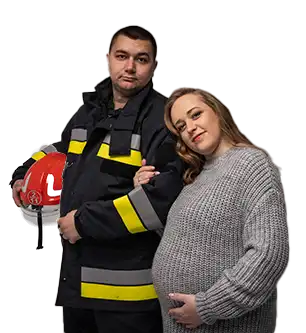
Vancouver Fire Stations Report That 34 Firefighter Deaths May Be Attributable To AFFF Cancer
Firefighter turnout gear contains forever chemicals making them waterproof and fire-resistant
Thursday, April 11, 2024 - The alarming statistic that 34 Vancouver Canada firefighters have succumbed to work-related cancers since 2017 casts a stark light on the risks associated with the profession. According to vancouverisawesome.com, this sobering figure was highlighted by firefighter Lee Lax during his advocacy for city council approval of $2.8 million in funding for new, chemical-free turnout gear. Aimed at reducing the AFFF cancer risk among firefighters, Lax's proposal underscores a critical need for enhanced protective measures. In his address, Lax paid tribute to retired Battalion Chief Bruce Tebbett, who passed away in March 2023 at the age of 62. Tebbett's death, occurring just five years post-retirement after a 35-year service, was attributed to occupational cancer, illustrating the severe health challenges firefighters face long after their service ends. As vice-president of Vancouver Firefighters IAFF Local 18, Lee Lax stressed that the firefighting community has long warned officials and the general public about the cancer dangers associated with their line of work. Bruce Tebbett's terrible death serves as an example of the grave implications that firefighters face in their line of work. Lax's activism is part of a larger movement to obtain safer gear free of dangerous chemicals, which are a major contributing cause to firefighters' higher risk of cancer. In addition to making a strong case for action, his speech to the city council served as a moving reminder of the human cost of putting off these front-line heroes' necessary safety measures.
Vancouverisawesome.com writes that the issue of firefighter cancer is not new. Nearly two decades ago, Vancouver firefighter Rob Hall led a successful campaign urging the provincial government to acknowledge the link between the profession and cancer risk. Hall, who succumbed to colorectal cancer at 51 in 2007, became a posthumous symbol of the fight against occupational hazards that firefighters face. In a twist of fate, colorectal cancer was among the seven types of cancer recognized as job-related risks for firefighters in the legislation enacted by the B.C. government in October 2005. This legislative victory, however, came too late for some, including Hall, but set a precedent for recognizing and addressing the health risks associated with firefighting. The battle against cancer in the firefighting industry rages on despite these regulatory developments. Lee Lax's numbers are a sobering reminder of the continuous fight against occupational cancer. A major advancement in shielding firefighters from the sneaky cancer threat is the drive for the use of chemical-free turnout gear. There is an immediate need for appropriate protection measures since firemen continue to risk their lives to safeguard communities. The legacy of people like Bruce Tebbett and Rob Hall emphasizes how crucial it is to keep up the fight for these courageous men and women's health and wellbeing.
Recently, firefighters have been confronted with the concerning revelation that their turnout gear contains per-and-polyfluoroalkyl substances (PFAS), also known by the moniker "forever chemicals." These substances, notorious for their persistence in the environment and potential health risks, have raised significant alarm within the firefighting community. Firefighting gear, which is crucial for protection against the hazards of the job, typically consists of three layers: an outer shell, a thermal liner, and a moisture barrier. In a proactive response to these concerns, since early 2021, Vancouver Fire Rescue Services has ensured that the outer shells and thermal liners of all its turnout gear are free from PFAS products, marking a significant step towards safeguarding firefighters' health.
 OnderLaw, LLC and The Overholt Law Firm, PC -
OnderLaw, LLC and The Overholt Law Firm, PC -